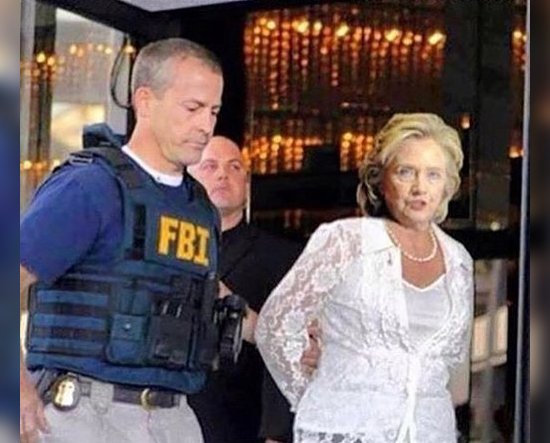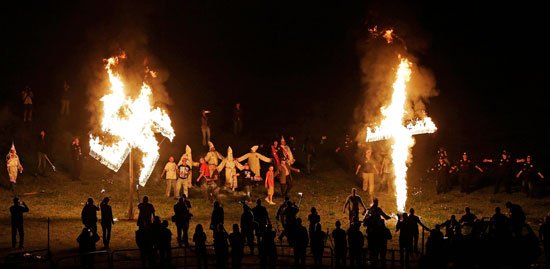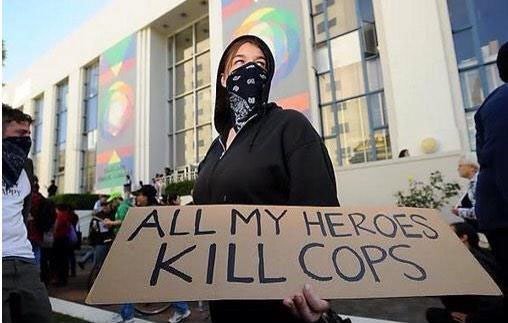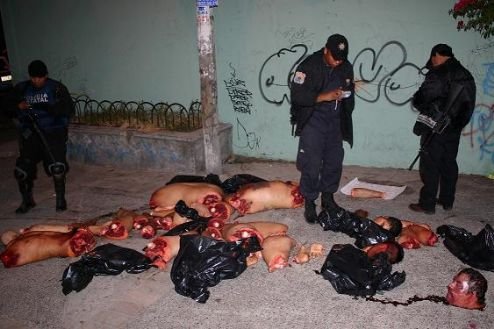Homeland Security: The Sworn Duty of Public Officials - ReSteem
This post has been reSteemed from 6 months ago; there have been minor updates
The United States has a unique position amongst the countries of the world; it has a history of individual rights, legal process, economic success, and cultural inclusion that few other countries can meet. This view of America's place in the world is often called “exceptionalism”. This view, and the listed attributes that contribute towards it, flies in the face of most human governing philosophies which are statist or tribal ( or both) in nature. The concept of America is thus hated by many, who then seek to harm the way of life in the United States, and to harm the Americans who benefit from it.
The sworn duty of public official in America is to protect Americans from these threats. Horwitz argues that the Constitution is a "meta-rule of construction" dedicated to "national self-preservation", he stresses the importance of the Presidential Oath as dedicated to preserve, protect, and defend the Constitution (2009, pp. 1069-1070). We can see that the oath of every public official derives from the principle of "national self-preservation" based upon the Constitution. These duties include understanding the threats to the United States, developing the proper measures to counter those threats, and ensuring that those measures are effectively pursued. The purpose of this paper is to explore that relationship.

This is not a real picture, although had officials of the FBI adhered to their sworn duty, it would have been...
Understanding the threats posed to America requires understanding both the organized threats, and the threats that occur due to normal circumstances. The three major threats which have faced Americans have been racism, statism in the form of socialism and Islam, and mala in secrime.
Racism is a philosophical threat due to it's primary opposition to individual rights and the legal process, but becomes an actual threat when racists use violence to prevent Americans from using their rights. Socialism, also known as leftism, is statist by nature, and threatens the American way of life in all four areas ( individual rights, legal process, economic success, and cultural inclusion. Islam is a religion and political system in one package, sharia, which denies the principle of individual rights. Mala in se (that crime which is evil in nature such as murder and theft) crime steals both life and economic success from Americans.
There are other threats, those that arise out of normal circumstances, that play into the way that America can respond to the major threats. Growth complex hurts our ability to defend ourselves when bureaucrats are more concerned with budgets than with achieving their primary mission. Corruption within the system, whether through ideology or through bribery, subverts the ability to defend the nation. Complacency, corruption and growth complex all contribute towards an environment in which “the oath can all too easily become 'a meaningless and perfunctory recitation' rather than an acknowledgment of the high level of responsibility that it is meant to imbue in its takers” (Hundley & Wamsley, 2012, p.644). Economic threats pose a mostly unrecognized danger to America, Nando argues that "National security depends also on soft power, the ability of a country to generate and use its economic power and to project its national values" (2011, summary).
Economic threats can result from rent-seeking and/or do-gooding agendas on the part of America's elected officials and unelected bureaucrats, either as a result of incompetence, corruption, disregard for failure, or ideological advancement. A prime example of such failure is illegal immigration policy.

The Ku Klux Klan, The New Black Panther Party, and Black Lives Matter are the most recent forms of organized racist violence in the United States. The Klan has gone through several iterations of organization. Similar to the Klan are Christian identity groups such as the Army of God, and anti-government militias, such as those the FBI took action against in 1996; the Freemen Organization, The Mountaineer Militia, and the Washington State Militia (Federal Bureau of Investigation, 1996, pp.7-8). Socialist violence has been limited to “animal rights” and “ecological groups” for the most part since the mid 1980's. Up to that time, the remnants of the New Left terror groups were the most serious terror threat. The "ecological" groups include the Animal Liberation Front (ALF), the Earth liberation Front (ELF), and Revenge of the Trees (ROTT); these groups committed all terror attacks within the United States in the year 2000 (Federal Bureau of Investigation, 2001, p.2) but the “Occupy Wall Street” movement has brought leftist violence back to Americas streets.

Leftists have used less violence as they have subverted influential American institutions such as academia, the media, and the bureaucracy. George notes that “A surprising number of college and university professors...were active in... radical movements...Many critiques of the trend towards authoritarianism on some campuses...charge that these former radicals have played a major part in it's development” (1996, p. 144). Islamist groups include lone wolves. Al Qaeda, Hamas and Hezbollah, who also use crime in America to fund their terror activities. Criminal groups include nacroterror cartels, organized crime syndicates, and street gangs.
Although the Obama administration accused veterans and anti-government groups as potential terror groups, this was done on ideological grounds and not on a realistic threat basis. The current most violent right-wing actions are undertaken by "sovereign" citizen groups, who also target police...rather than politicians...for violence. The Oath Keepers is a Constitutionalist, anti-"government" group that does not advocate violence against public officials, but states that they will not obey illegal orders. The Oath Keepers also organize to provide a network or resilience if disasters overtake the United States.
Full disclosure - I am a card carrying member of Oath Keepers, although I haven't participated in any activities for over three years
There was a “wall” preventing information sharing prior to 9/11. Intelligence services committed many excess in the 1970''s which led to restrictions on their operations; Collier and Horowitz explain that they were ”barred from surveillance of all political groups, even those whose agenda indicated intentions to engage in illegal and violent acts” (2006, p. 217). Powers asserts that this atmosphere led to an environment in which FBI agents were described as “risk-averse, politically correct, an excess of caution, timorous” (2004, p. 47). Although the PATRIOT Act provided for information sharing access, there are still areas in which full information sharing is prevented. Information sharing is vital to homeland security as the GAO acknowledges, “Information procedures should provide incentives for sharing, to restore a better balance between security and shared knowledge” (United States General Accountability Office, 2004, p. 33).
Border issues are also an area of security concern. The threat on the largest scale is the economic damage caused by illegal immigration; unemployment of citizens, a lowered wage scale, welfare expenditure not only to citizens cut out of work by illegal immigration but often to those that are here criminally, and by remittances of wages to the homelands of the aliens. As Nardo previously discussed, such economic damage also hurts homeland security. However, there are threats from organized groups as well; the narcoterrorist cartels (Drug Trafficking Organization/DTO)and the gangs they ally with The DPS report makes the point that “Gangs working with the Mexican cartels are involved in a level of crime that affects the entire state”(DPS, 2013, p.20). The DPS report also points out that DTO's have a history of corrupting public officials in Mexico and that the DTO's “ also seek to corrupt public officials in the US” (DPS, 2013, p.34). Finally, there is the distinct possibility that terror groups use the unprotected nature of our borders to sneak into the country, a possibility Whitfield (2011) discusses at length.

Narco terror violence on the border
The United States has attempted to deal with these threats with several mechanisms. The first was the creation of the Department Homeland Security, the 2007 National Strategy for Homeland Security specifies three primary goals, and a fourth goal of building a foundation to support the first three. The three primary goals are to prevent and disrupt terrorist attacks; to protect the American people, our critical infrastructure, and key resources; and finally to respond to and recover from incidents that do occur (2007, p.1). The PATRIOT Act was passed, with a , cough couch, stated goal of bringing down barriers to effective intelligence sharing. As noted previously, the PATRIOT ACT has been a failure in the terms of the security/liberty balance, achieving neither.
These initiative are not enough. America needs to take a preemptive attitude towards dealing with those that have publicly declared we are their enemies. In addition, we have not acted fully upon the measures we have set as our goals. Specific recommendations 9/11 commission were not followed up on; The 9/11 Families for a Secure America Foundation in conjunction with Family Security Matters (Gadiel and Dunleavy, 2011) issued a report card on the implementation of the 9/11 Commission's findings at the end of the ten year period after the attack. This report card covered twenty-six of the Commission's forty-one recommendations The majority of these grades were in the “C” to “F” range. (Durchin, 2015, p, 1).
To make the issue worse, our local and Federal agencies have not fully come together to pursue these goals in a cooperative manner. Brig. Gen Wilson described the fusion centers he has worked with as ineffective due to interorganizational conflict (2015).
The foremost thing that America's security professionals need to do is to remember their oaths, and see to it that all public officials see to their own oaths as well. Williams discusses the concept of “Neglect in Duty” in English common law; a concept which applies to any public officer in any polity; he quotes Stephen to the effect that “Every public officer commits a misdemeanour who willfully neglects to perform any duty which he is bound either by common law or by statute to perform” (Williams, 2010, p. 336). And yet there are myriad examples of public officials failing to perform their sworn duties and failing to be held accountable for their actions.
Governor Nixon failed to deploy the National Guard in riot conditions with the result that several business were destroyed (Williams specifically mentions on page 338 a mayor who fails to prevent a riot as an example of “Neglect in Duty”). In Operation Fast and Furious, BATF provided weapons to violent narcoterror cartels in an operation that the OIG of the DOJ found to have “lack of sufficient controls and inadequate attention to public safety” (Department of Justice, 2012, p. 419), and that resulted in the deaths of 3 American lawmen ( and hundreds of Mexican nationals). AG Eric Holder then punished whistle blowers and refused to provide evidence in the matter. The Obama administration traded five known terrorists for one known deserter; CNN discusses the suspicion that the released terrorists may have started terror activity upon release (Starr, 2015, para 1-3). The Obama Administration can not even hold to legal standards on border security; “President Obama’s lawyers admitted to a federal judge late Thursday that they had broken the court’s injunction halting the administration’s new deportation amnesty” (Dinan, 2015, para. 1).
There has been no repercussion for these acts of nonfeasance and malfeasance, despite the pattern of their incidence. Davidson and Stone explain that our legal system does not rely on one single agency to punish such acts:
Although the Constitution assigns some responsibilities exclusively to one or another branch of government, in general our legal and political system resists rigid institutional assignments. In evaluating where to lodge responsibility for an inquiry, it is better to think of guideposts rather than barriers or mandated sequences(2000, p. 33).
It is up to the sworn officer on the line to ensure that the oaths of all public officials are adhered to, elected official or not. Although every jurisdiction has different laws regarding nonfeasance, malfeasance, and misfeasance, in most jurisdictions these are aresstable offenses. Security officials can not be expected to uphold their own oaths when politicians suborn those oaths without punishment
References
A review of ATF’s Operation Fast and Furious and related matters. (2012, November )U.S. Department of Justice Office of the Inspector General. Retrieved May 16, 2014 from http://www.justice.gov/oig/reports/2012/s1209.pdf
Collier, P., & Horowitz, D. (2006). Destructive generation: second thoughts about the sixties. San Francisco: Encounter Books.
Davidson, M., & Stone, E. W. (2000). Responding to official misconduct where should responsibility lie? The Brookings Review, 18(1), 32–35. Retrieved May 12, 2015 from http://search.proquest.com.southuniversity.libproxy.edmc.edu/docview/195568296?pq-origsite=summon
Dinan, S. (2015, May 8).DHS broke judge’s order, approved amnesty applications despite injunction. The Washington Times. Retrieved May 12, 2015 from http://www.washingtontimes.com/news/2015/may/8/dhs-broke-judges-order-oks-amnesty-applications/
Durchin, S. (2015). 9/11 Commission recommendation evaluation:A Sample selection of three recommendations. Unpublsihed manuscript. South University. http://gradschoolfool.blogspot.com/2016/02/911-commission-recommendation.html
Federal Bureau of Investigation. (1996). Terrorism in the United States 1996. Retrieved August 20, 2014 from http://www.fbi.gov/stats-services/publications/terror_96.pdf
Federal Bureau of Investigation. (2001). Terrorism 2000 / 2001. Retrieved September 19, 2014 from http://www.fbi.gov/stats-services/publications/terror/terror00_01.pdf
Gadiel, P. and Dunleavy, P. (2011, September 7). Report card on the 9/11 Commission's recommendations. Family Security Matters. Retrieved April 23, 2014 from http://www.familysecuritymatters.org/publications/id.10324/pub_detail.asp
George, J. (1996). American extremists: Militias, supremacists, Klansmen, communists & others. Amherst, N.Y: Prometheus Books.
Horwitz, P. (2009). Honor’s constitutional moment: The oath and presidential transitions. Northwestern University Law Review, 103(2), 1067–1080. Retrieved May 12, 2015 from http://search.proquest.com.southuniversity.libproxy.edmc.edu/docview/233344356?pq-origsite=summon
Hundley, M., & Wamsley, G. (2012). John Rohr’s legacy: Constitutional literacy and the public service. Administrative Theory & Praxis, 34(4), 642–647. Retrieved May 12, 2015 from http://search.proquest.com.southuniversity.libproxy.edmc.edu/docview/1270658791?pq-origsite=summon
Nando, D. (2011). Economics and national security: Issues and implications for U.S. policy. Congressional Research Service. Retrieved April 23, 2015 from http://fas.org/sgp/crs/natsec/R41589.pdf
Powers, R. G. (2004). A bomb with a long fuse. American History, 39(5), 42–47. Retrieved September 10, 2014 from http://search.ebscohost.com/login.aspx?direct=true&db=a9h&AN=14624935&site=ehost-live&scope=site
Starr, B. (2015, January 30). Officials: Detainee swapped for Bergdahl suspected of militant activities - CNN.com. CNN. Retrieved January 30, 2015 from http://www.cnn.com/2015/01/29/politics/bergdahl-swap-prisoner-militant-activity/index.html
Texas Public Safety Threat Overview 2013. (2013). Texas Department of Public Safety. Retrieved January 15, 2015 from http://www.txdps.state.tx.us/director_staff/media_and_communications/threatOverview.pdf
United States General Accountability Office. (2004). Summary of recommendations -- the 9/11 Commission Report (No. B-303692). Retrieved April 23, 2015 from http://www.gao.gov/decisions/other/303692.pdf
Whitfield, N. S. (2011, December). Traveling the terror highway: infiltration of terror operatives across the U.S.-Mexico border (Thesis). Naval Postgraduate School. Retrieved October 17, 2014 from https://calhoun.nps.edu/handle/10945/10708
Williams, T. F. (2010). Neglect of duty and breach of trust: Ancient offences in the modern battle against impunity in the public service. Journal of Money Laundering Control, 13(4), 336–350. http://doi.org/http://dx.doi.org.southuniversity.libproxy.edmc.edu/10.1108/13685201011083867
Wilson, C. (2015, March). Broadening focus on terrorism: The role of finance, economics, and organized crime. Panel discussion at the 2015 52nd Annual Meeting of the Academy of Criminal Justice Scientists.
Originally posted in a different format at Grad School Fool















How do you resteem from 6 months ago? When I look in my blog the RS trigger isn't there. Do I cut and paste the whole article? I have a few from back when I had under 100 followers I'd like to repost. HELP!!!!!
yup, basically a cut and paste, and reinserting Markdown where necessary.
the good thing about recreating the post is you can correct spelling, add in missed thoughts, comment on changes since, add in commenter's thoughts etc etc
Got it! I have some good ones from "back in the day" lol! I'd like more people to see them.
Oh shit, I was just scrolling and I have seen that picture :O
Thanks for sharing @stevescoins
Nice